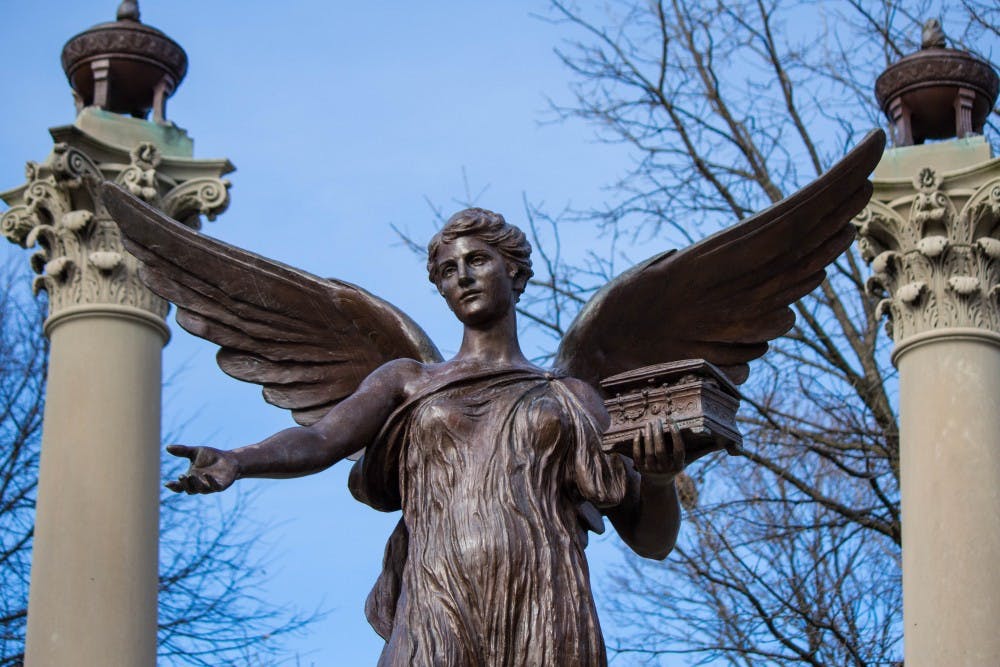According to a press release from Ball State University Chief Digital Marketing & Communications Officer Greg Fallon:
A grant worth more than $1.3 million over a three-year span has been awarded to Ball State University from the United States Department of Education August 25. Ball State aims to use this grant in its project, Civic Renewal through Education for Agency (CREATE), which works with the American History and Civics Education-National Activities program, funded by Congress as part of the Every Student Succeeds Act (ESSA), Public Law 114–95.
With Muncie Community Schools (MCS), Ball State plans to develop the project as an innovative approach to instruction, student learning, and professional development in civics that integrates American history, geography, government, and media literacy.
There are six Ball State employees set to join this project, including Dr. Anand R. Marri, dean of Ball State's Teachers College, and Dr. David J. Roof, associate professor of Educational Studies, serving as co-principal investigators. Joining them are, Dr. Jill Bradley-Levine, associate professor of Educational Studies; Dr. Jerrell C. Cassady, professor of Psychology-Educational Psychology; Kate H. Elliott, lecturer of Journalism; and Dr. Michael T. Ndemanu, associate professor of Multicultural Education.
Once the CREATE project is fully implemented, the goal is to have five major components developed. According to the press release, these five goals are as follows:
"• A Civic Learning Repository, with an extensive set of resources pertaining to civics, American history, geography, government, and media literacy.
• An extensive set of professional development opportunities for civics, history, and social studies teachers and administrators offered during the school year to enhance and multiply the resources and skills teachers bring to MCS’ civics and civics-related courses. One major focus of this will be parent, family, and community engagement.
• A summer Civic Learning Academy for MCS teachers and selected students. This 14-day program will immerse at least 10 teachers annually in civics and history curriculum. The Academy will also immerse at least 30 students annually in the same curriculum simultaneously with teachers, providing teachers an opportunity to see students co-direct their own civic learning and preparing students to model such agentic learning in their classrooms.
• An emphasis on teacher-initiated, student-designed civics and history projects and field trips. The CREATE project includes funding, allocated on a competitive basis, for teachers with innovative ideas, existing institutional resources, and identified opportunities for modeling constructive civic practices.
• An annual Civic Learning Symposium for teachers, students, project personnel, national experts, and other interested stakeholders. This annual symposium will involve national experts in civics and history as event speakers. As an interactive symposium, local teachers will present their innovative approaches to civics in the classroom. This symposium will also serve as a capstone event to recap innovations and achievements during the previous year."
A new Indiana law has been passed that requires every middle school (grades 6-8) student in the state to take a semester-long civics course by 2023, guiding Ball State and MCS to initiate this project. That said, the law does not provide detailed guidance about course content and objectives or about how to prepare educators to design and teach said course. In that case, CREATE’s approach to civics education features a collaboration with a multi-institutional team of nationally recognized scholars who teach a civics curriculum for undergraduates and pre-service teachers.
There are three types of civic learning the CREATE team aims to teach students, according to the press release:
"• Civic knowledge, or an understanding of American history and political development, governmental structures and processes, and relevant social studies knowledge and concepts.
• Civic skills, or the capacities that enable students to participate in a democracy as free, responsible, deliberative, and productive citizens.
• Civic dispositions, or the attitudes important in a democracy such as a sense of responsibility for one’s community and nation, an awareness of a shared fate with fellow citizens, curiosity about the challenges and opportunities of public life, and concern for the welfare of others."





